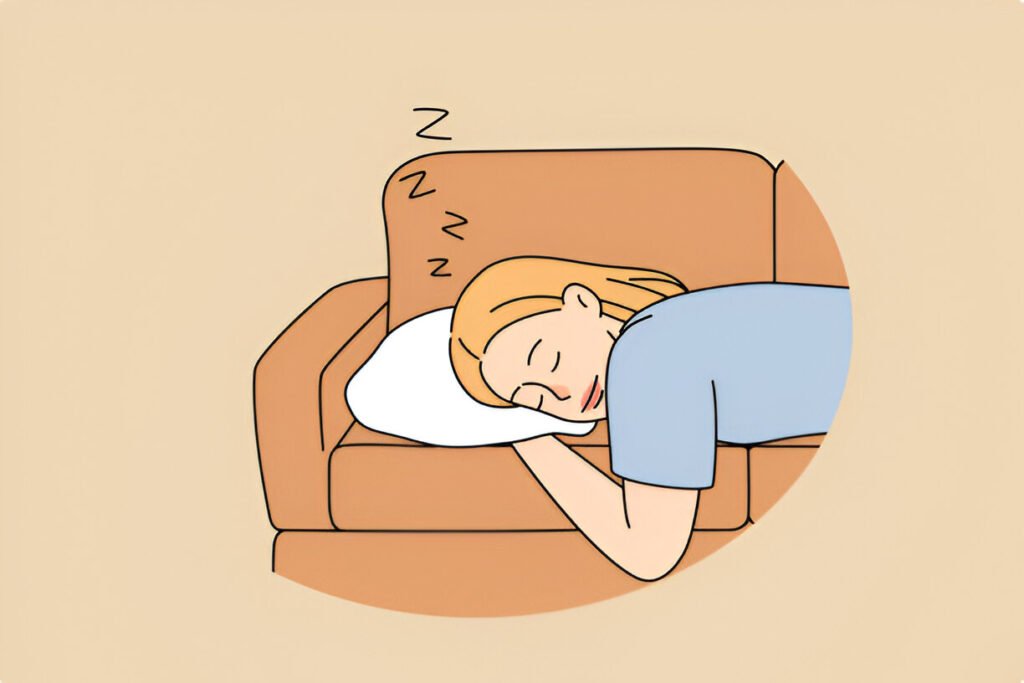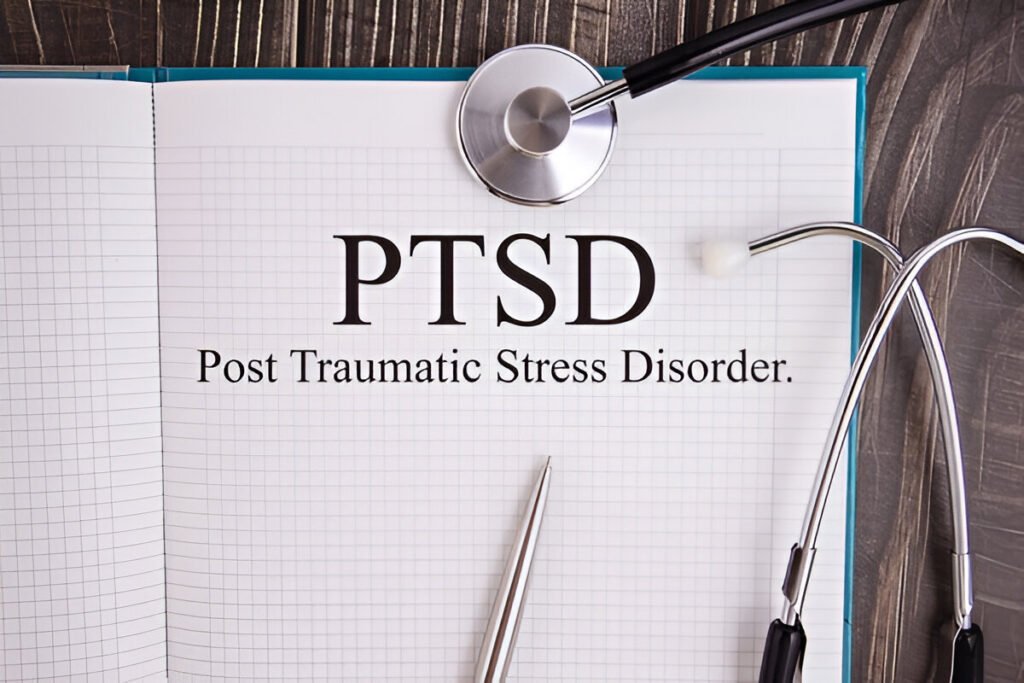Sleep health is a fundamental pillar of overall wellness, deeply intertwined with the management of stress. When stress levels rise, they can significantly impact both the physiological and psychological aspects of our lives, leading to disruptions in sleep patterns. This creates a detrimental cycle where anxiety hampers sleep quality, and inadequate rest exacerbates stress.
To break this cycle, it is crucial to prioritize stress reduction techniques that facilitate restful sleep and enhance cognitive performance, stabilize mood, and support physical health. This guide will explore effective strategies for managing stress, ultimately paving the way for improved sleep health and a more balanced life.
Understanding Stress
Stress is an inherent physiological reaction to perceived threats or challenges, commonly referred to as the “fight or flight” response. This response can be classified into two primary categories: acute stress, which is temporary and typically triggered by specific events such as a job interview or a public speaking engagement, and chronic stress, which persists over time and often arises from ongoing life pressures like financial difficulties or strained relationships. Recognizing the distinction between these types of stress is vital, as chronic stress can have profound implications for mental and physical health, potentially leading to anxiety disorders, depression, and various sleep-related issues.
The impact of stress on sleep is significant, as it activates the release of hormones like cortisol and adrenaline, which prime the body for action. Elevated levels of these stress hormones can cause an increased heart rate, heightened vigilance, and difficulty relaxing, all of which adversely affect sleep quality. Individuals experiencing stress may find themselves grappling with common sleep disorders, including insomnia, characterized by trouble falling or staying asleep due to racing thoughts or anxiety; sleep apnea, which involves disrupted breathing during sleep exacerbated by stress-related muscle tension; and restless leg syndrome, marked by an uncontrollable urge to move the legs, often linked to underlying anxiety. Understanding these connections is essential for addressing stress and its effects on sleep health.

Stress Reduction Techniques
Mindfulness is a powerful mental practice that encourages individuals to anchor themselves in the present moment, fostering a sense of calm and effectively reducing stress levels. This approach emphasizes awareness of thoughts, feelings, and bodily sensations without judgment, allowing for greater emotional regulation and resilience against stressors. Meditation, an integral aspect of mindfulness, has been extensively studied and shown to lower cortisol levels, contributing to enhanced overall well-being. Among the various techniques, breath awareness is particularly effective, as it focuses on the natural rhythm of breathing, helping to centre the mind and diminish distractions. Another useful method is the body scan, a guided practice where individuals systematically focus on different body parts, promoting deep relaxation and heightened awareness.
Physical Activity
One of the best methods to manage stress is to exercise daily. Exercise stimulates the release of endorphins, the body’s natural mood enhancers, which help elevate spirits and alleviate feelings of anxiety. Additionally, physical activity reduces cortisol levels, further contributing to a calmer mental state. Various forms of exercise can serve as powerful stress relievers, with aerobic exercises such as running, swimming, and cycling being particularly beneficial. These activities enhance cardiovascular health and significantly improve mood and sleep quality. Another valuable practice is yoga, which integrates physical movement, breath control, and meditation, making it an excellent choice for reducing stress and promoting overall relaxation.
Healthy Sleep Hygiene
Establishing effective sleep hygiene is essential for improving overall sleep health and combating the effects of stress. Key practices include maintaining a consistent sleep schedule, which involves going to bed and waking up at the same time each day to help regulate the body’s internal clock. This consistency plays a crucial role in enhancing sleep quality and ensuring adequate rest. Furthermore, creating a conducive sleep environment can significantly impact sleep health; individuals should aim to minimize noise, ensure that their mattress is comfortable, and maintain a cool room temperature. Utilizing blackout curtains and white noise machines can also help establish a calming atmosphere conducive to restful sleep.
Relaxation Techniques
Integrating relaxation techniques into daily routines can significantly mitigate stress levels and enhance overall well-being. One of the most straightforward methods is deep breathing exercises, which involve focusing on slow, deliberate breaths to activate the body’s relaxation response and counteract stress. Another effective approach is progressive muscle relaxation (PMR), where individuals systematically tense and then relax different muscle groups to alleviate physical tension. Additionally, visualization techniques can be beneficial; by imagining a serene scene or recalling a peaceful memory, individuals can promote relaxation and redirect their focus away from stressors. Together, these techniques create a toolkit for managing stress and improving sleep quality.
Lifestyle Changes for Stress Management
The role of nutrition in stress management and sleep quality cannot be overstated. A well-balanced diet that includes essential nutrients is key to maintaining optimal physical and mental health. Incorporating whole grains into your meals helps stabilize blood sugar levels, reducing the risk of energy crashes that can lead to increased stress and irritability. Additionally, foods rich in omega-3 fatty acids, such as fatty fish, flaxseeds, and walnuts, possess anti-inflammatory properties that are effective in reducing stress and promoting a sense of calm. Furthermore, including magnesium-rich foods like spinach, almonds, and avocados in your diet can aid in regulating cortisol levels, the hormone associated with stress, ultimately promoting relaxation and better sleep.
While certain substances can offer temporary relief or stimulation, they can also exacerbate stress and disrupt sleep patterns. Caffeine and nicotine are two common stimulants that have this effect. To mitigate their impact, consider reducing caffeine intake, particularly in the afternoon and evening, as this can help prevent sleep disturbances that might arise from increased alertness. By being mindful of your caffeine consumption, you can promote more restful sleep and a calmer demeanour throughout the day. Likewise, avoiding nicotine in all forms is crucial; smoking or using nicotine products can elevate heart rate and lead to anxiety, ultimately contributing to insomnia and other sleep-related issues.
Adopting effective time management strategies is another vital aspect of reducing stress and enhancing sleep quality. Feeling overwhelmed by daily tasks can significantly contribute to stress, so it’s essential to cultivate a sense of control over your responsibilities. Start by prioritizing tasks; using tools such as to-do lists or digital planners can help you organize your tasks based on urgency and importance, allowing you to focus on what truly matters. Additionally, set realistic goals by breaking larger projects into smaller, manageable steps. This approach not only prevents feelings of being overwhelmed but also fosters a sense of accomplishment as you complete each task, ultimately leading to reduced stress and improved sleep health.

Seeking Professional Help
Knowing when to seek professional help for stress management is essential for maintaining mental health and overall well-being. Key indicators that it may be time to consult a healthcare provider include persistent feelings of anxiety, challenges with concentration, or noticeable changes in sleep patterns. Various professionals can assist in these situations: therapists and psychologists can offer cognitive-behavioural therapy (CBT) to help identify and modify negative thought patterns contributing to stress, while sleep specialists can conduct sleep studies and recommend targeted interventions for sleep disorders associated with stress. Seeking timely help can lead to more effective stress management and improved quality of life.
Conclusion
Effectively managing stress is crucial not only for improving sleep health but also for fostering overall well-being. By integrating practices such as mindfulness, physical activity, and relaxation techniques into daily life, individuals can enhance their sleep quality and cultivate a sense of calm. Additionally, recognizing the role of lifestyle choices—like proper nutrition and effective time management—can further bolster stress-reduction efforts, leading to a healthier and more balanced life.
For individuals facing chronic stress or significant sleep disturbances, seeking professional help is an important and proactive step. Engaging with therapists, psychologists, or sleep specialists can provide valuable support and tailored strategies to address specific challenges. Ultimately, prioritizing stress management and making conscious lifestyle changes can pave the way for better sleep health and an improved quality of life.





